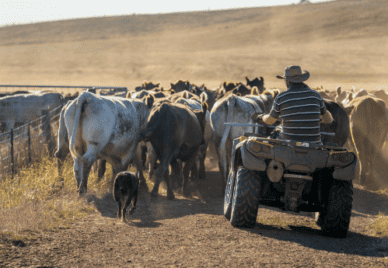
Enhancing Models for Rapid Decision-Support in Emergency Animal Disease Outbreaks
Exploreabout Enhancing Models for Rapid Decision-Support in Emergency Animal Disease Outbreaks
This project will deliver a federated Australian air quality data system and a bushfire-specific air pollution exposure dataset that’s consistent throughout Australia. It will bring together the vast amount of air quality data collected in Australia into a common architecture and provide air pollution exposure mapping, processing and analysis that links this data with population health data. The project supports capability uplift in smaller jurisdictions so that the maximum value of Australia’s investment in air quality monitoring and modelling can be realised. Importantly, by standardising and codifying the air quality data ecosystem in Australia, the project lays the foundation for ongoing improvement of air quality data services.
This project has developed an accessible data asset of bushfire-related health service use, which covers an extended time period and is disaggregated by small geographic area. This will facilitate research into the immediate and longer-term effects of bushfire on human health. While this project has focused on the impact of bushfires on health service use, it is envisaged that the data asset will have wider applications and could act as a proof-of-concept for designing future data assets across other aspects of environmental health.
In this project, the ALA will collaborate with experts to create a curated biodiversity dataset that can be used off-the-shelf for bushfire impact modelling. This will also incorporate edits and annotations by expert users back into the main ALA dataset, enriching the data resource. Knowledge from different research teams will also be aggregated to implement best-practice data cleaning workflows at the ALA, allowing improved data cleaning at scale. Finally, ALA will establish mechanisms to capture and share common analysis methods from bushfire research, including Species Distribution Models.
Access the data now: doi.org/10.25919/tm4m-5a46
To create tools that allow conservation managers to protect species and their genetic diversity, this project will locate and aggregate descriptions of all relevant genomic data in one place (for example, genome assemblies, genome annotations, barcodes, raw data, and other omic data). This enables searching across these data based on a variety of contextual aspects around the organisms (for example, taxonomic grouping, functional classifications — such as fire tolerance/drought/salt/ conservation status — and geographical location). Genetic information has a substantial impact on improving conservation outcomes by providing answers to important questions on species populations’ recovery and rebound after major catastrophic events.
Visit the Australian Reference Genome Atlas.
This project will build an enduring living database of fire-relevant ecological and life history traits for Australian invertebrate species. Such information is crucial to help rapidly identify the species likely to be most imperilled by future comparable fires, and to guide targeted management where it is needed. The project will align the invertebrate database with existing model databases for Australian plants and vertebrates (notably AusTraits). The project will expand the existing database from 1200 species (1 per cent of Australia’s described invertebrates) to at least 10 per cent of that biota, and develop or adopt protocols to allow ongoing inputs (by experts or supervised volunteers) to the database.
This project will provide a secure platform for researchers to access diverse bushfire related datasets, together with a suite of analytic and visualisation tools to perform a variety of bushfire related simulations and analyses. Wherever possible, these data sets will be programmatically accessed from targeted government and related agencies responsible for monitoring bushfire related information, including fire history, fuel, health, air quality and ecosystem and biodiversity at a national level. The platform will support access to data at finer-grained disaggregated levels wherever possible. The platform will support flexible access rights that restrict access to the data sets and tools as deemed appropriate by various government and related agencies providing data.